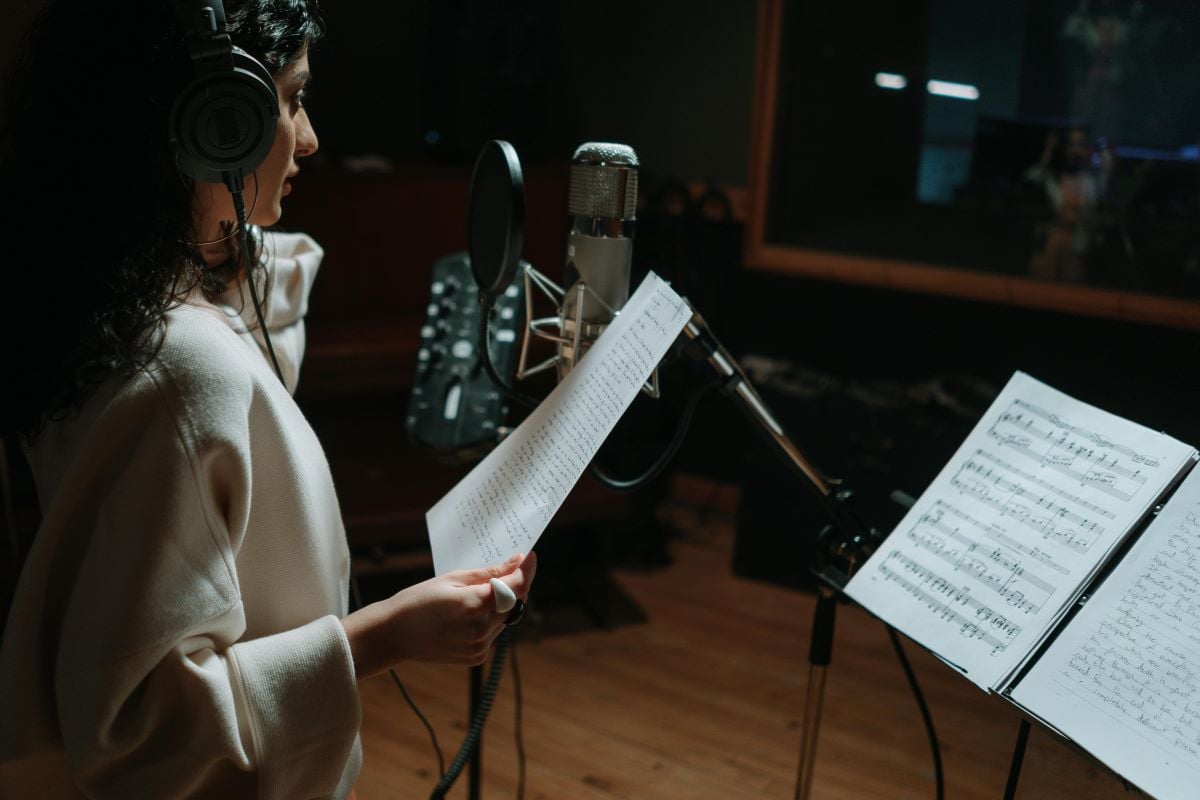
Photo: cottonbro studio/Pexels
UK’s soft power strategy ‘must involve creative sector’
Report warns UK risks 'self-inflicted economic and diplomatic damage' unless government boosts its support for creative industries on the world stage.
A 'Soft Power Council' chaired by the Foreign Secretary and made up of artists and organisations representing creative talent should be established to maintain the UK's status as a global leader in the sector, a report has recommended.
The report, published today (16 May) by think tank Erskine Analysis and University of the Arts London, says the council would act as a forum between government and the sector, helping the UK to take advantage of global opportunities.
It adds that unless action is taken, the UK risks "self-inflicted economic and diplomatic damage", pointing out that competitors like France, Canada, and South Korea are actively supporting their creative sectors with well-defined strategies.
READ MORE:
- UK creative industries 'an export success story'
- Government complacency 'jeopardising creative industries'
The report highlights the importance of the UK’s creative sector to the economy, pointing out that it grew more than 60% faster than the wider economy from 2010 to 2019, with provisional statistics suggesting that in 2022 it contributed £124.6bn to the economy.
However, it states that Brexit and ongoing global unrest, alongside government immigration, trade and diplomatic policies, have left the creative sector "exposed to skills shortages, less able to sell goods and services and underestimated as a soft power asset".
"By looking at the investments being made by our competitors like South Korea, France and Canada, it is clear that complacency will lead to decline," the report states.
"However, as market leaders in the creative industries globally, the UK still has a sizable advantage and, despite signs of decline, it is not too late to reverse some of the concerning trends identified in this paper."
The proposed Soft Power Council would be made up of artists, organisations and businesses representing the diversity of emerging and established British talent, including those representing businesses, arms-length bodies and other interest groups.
"To be effective, the council would need clear outcomes associated with it, which should include an ambition to provide recommendations for the focus of a ‘soft power calendar’ of global influencing opportunities over the year to the Foreign Secretary," the report states.
Other recommendations include the creation of a £50m "digitisation fund" for the BBC World Service, which the report calls "one of the most globally familiar creative industries’ brands", to allow the UK to reflect British values around the world and tackle global disinformation.
Creative trade opportunities
The report also calls for the introduction of a visa for the world’s best designers and craftspeople, and a live calendar of creative trade opportunities delivered by the Department for Business and Trade.
Publication of the report coincides with a visit to Saudi Arabia earlier this week by leaders of UK arts and culture organisations – including the Royal Opera and Ballet, the National Theatre and the Southbank Centre – as part of the government-backed Great Futures trade mission.
The report says the government's overriding GREAT Campaign, of which Great Futures is a part, should be run by a single 'Soft Power Unit' (a separate entity to the Soft Power Council) bringing together the resources from a number of smaller teams which already operate across Whitehall
This unit would sit in the Cabinet Office, have strong links to both the DCMS and the Foreign Office and would be responsible for briefing embassies, and arranging cultural events for Number 10 and visiting dignitaries.
'Complacency'
Eliza Easton, Founder of Erskine Analysis and author of the report, said that although the creative industries is one of only a few areas of the economy where the UK exports more than it buys in, the UK Government has been "complacent" in its support for the sector on its global stage.
"Creative businesses feel they have been an afterthought in trade, migration and foreign policy.
"Funding for the British Council and BBC World Service has dwindled. Now, exports in many creative sub-sectors are down; fewer tourists are visiting our cultural organisations; fewer young people are engaging with our cultural exports.
"In short, the UK’s brand is diminishing. I hope this paper sets out a series of actionable policies that support a future government to change that trajectory, before it is too late."
Join the Discussion
You must be logged in to post a comment.